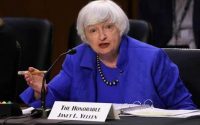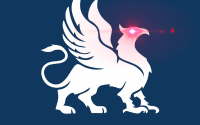Judge Rules AI Art Lacks Copyright Rights
U.S. District Judge Beryl Howell has reinforced the stance of the U.S. Copyright Office that artworks entirely generated by artificial intelligence (AI) are ineligible for copyright protection. This ruling arrives in the midst of growing concerns about the potential for AI to displace human artists and writers, raising debates on the boundaries of AI’s creative output.
“Artificial Intelligence Lawsuit: AI-Generated Art Not Copyrightable”—The Hollywood Reporter https://t.co/tfMhecah2z
— Brian Roemmele (@BrianRoemmele) August 19, 2023
AI vs. Writers
The ruling carries notable implications for the ongoing writer’s strike that has persisted for over 100 days. Fears have been mounting about the potential for AI to assume roles in scriptwriting, casting uncertainty over the future of human creators in the industry. However, this ruling underscore the prevailing principle that copyright protection is reserved exclusively for works authored by humans. Judge Howell’s decision emanated from a legal challenge posed by Stephen Thaler, the CEO of Imagination Engines, a neural network firm. Thaler contested the government’s refusal to register AI-generated creations, contending that AI should be recognized as an author if it meets the criteria for authorship, thus vesting ownership in the machine’s proprietor.
Contrary to Thaler’s assertion, Judge Howell maintained that human authorship is an integral cornerstone of copyright law. She drew on legal precedents, referencing cases like Burrow-Giles Lithographic Company v. Sarony, which upheld that protection is afforded solely to original intellectual expressions by human authors. She also referred to cases involving animals, demonstrating that works created by non-human entities are not copyrightable.
Copyright Law Essence
Emphasizing the essence of copyright law, Judge Howell underscored its purpose to foster creative involvement by human individuals. Copyrights and patents were conceptualized as forms of property that government safeguards, recognizing that exclusive rights in such property would fuel scientific and artistic progress by incentivizing human creativity and innovation. This ruling comes as the courts grapple with the legality of AI companies training their systems on copyrighted materials. Lawsuits have emerged in California federal courts where artists allege copyright infringement, potentially compelling AI companies to dismantle their large language models.
Read More: Elon Musk: X (Twitter) Ditches Blocks
While the Copyright Office previously stated in March that most AI-generated creations lack copyright eligibility, the decision leaves room for AI-assisted materials to qualify for protection in specific scenarios. If a human has creatively “selected or arranged” a work generated with AI assistance, it could be considered copyrightable.



